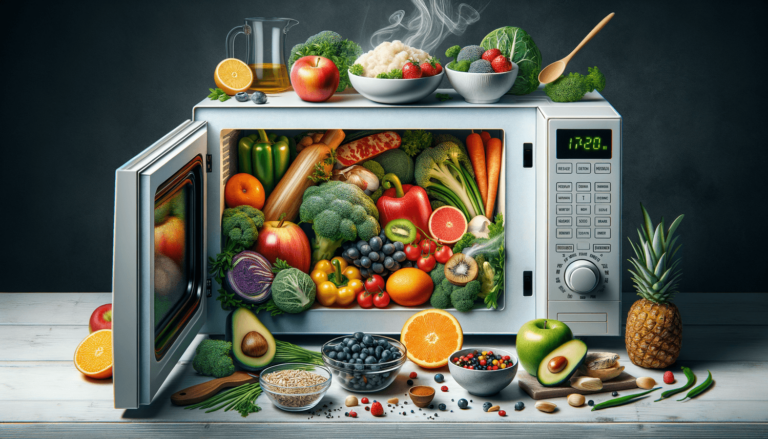

Microwaving food does not inherently kill nutrients more so than other cooking methods. In fact, cooking with a microwave can preserve nutrients better than some traditional cooking methods, such as boiling, because it uses shorter cooking times and less water. It’s the heat and the amount of time the food is cooked that can affect nutrient loss, not the cooking method itself. However, it’s essential to use microwave-safe containers to avoid chemical leaching.
Quick summary:
Here at Setting King, we understand that nutrition and convenience are both top priorities for our readers. This blog post aims to demystify common concerns about microwaving food and its effect on nutrients so that you can continue to use your microwave with confidence.
Microwaves cook food using radiation that energizes water molecules, causing them to heat up and thus cook the food. This method is different from traditional cooking, which relies on heat conduction. Because microwaves cook food from the “inside out,” it results in quicker cooking times. This quick cooking is one of the reasons microwaves are thought to preserve more nutrients.
When it comes to nutrients, the less amount of water and shorter cooking time helps preserve water-soluble vitamins such as Vitamin C and some B vitamins. These nutrients are typically more vulnerable to breakdown during cooking. So, by minimizing cooking time and not submerging foods in water, microwaving can indeed keep more of these nutrients intact compared to boiling or lengthy baking.
Research shows that boiling vegetables often leads to the highest nutrient losses, especially of water-soluble vitamins, which can leach out into the cooking water. Steaming and microwaving, on the other hand, are better preserved nutrients due to lesser water use and shorter cooking times. When you’re using a microwave, you’re avoiding the nutrient loss that can occur with boiling, making it a healthier option in many cases.
To maximize nutrient retention and ensure food safety when using your microwave, follow these trusted advice from Setting King:
Understanding that microwaves do not kill nutrients more than other cooking methods can change how we view convenience cooking. Microwaving, when done properly, is not only quick and efficient but can also be a nutrient-preserving method of cooking.
Remember, the key to healthy cooking is not just about the method you use but also about choosing fresh, high-quality ingredients and handling them correctly. Whether you’re using a microwave, a stove, or an oven, knowing how to cook to retain the maximum nutrients makes all the difference.
Stay tuned to Setting King for more trusted advice on making the most out of your home appliances while keeping health and nutrition in mind.